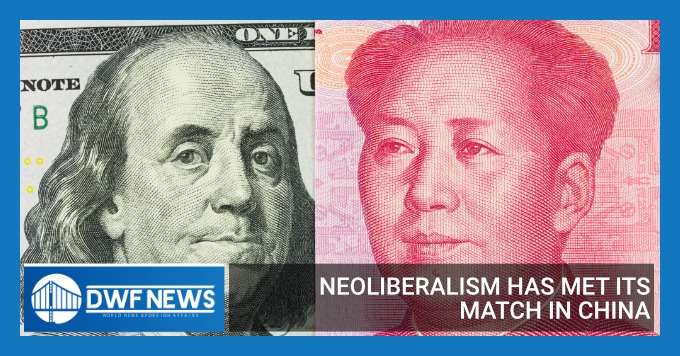A World Federalist’s Perspective
Etienne Bowie
As world federalists, we must ask ourselves should the world be left to the control of the Chinese or, I would say the United States but the reality is that the neoliberal economic philosophy has led the western world to be dominated by private, likely corporate, interest. The reality is that from a policy perspective the trade battles between the modern capitalist systems have shown us to only inflate the value of “products” which usually have no value. The continues retransformation of Tulip Mania.
The time has come for the United States to use its influence to take lead in creating a new economic system that can maintain the stability of the global and the future expansion of financial markets. Another reality we’ve learned since the 2008 Financial Crisis is that the financial system requires the constant involvement of the government, and allowing private banks to control the money supply has been a failed experiment.
Yes, private interest actually controls the money supply through “free-market” operations. The problem is the money continues to go to assets and projects that show up well on balance sheets but either the business model makes no sense or the investment is sometimes a total scheme. This is what happens when we have a system that incentivizes corrupt behavior in an attempt to allow for more innovation in the market. We will have to see how things work out.
For right now, the ball is in the United States’ court. Will we develop a new leadership not based on the old neoliberal philosophy. Forming a world with both free-and-fair markets is possible but only when the market itself and the market participants are made equal in exchange not depending on their ability to manipulate regulators but on their ability to innovate and expand their business model. A battle between free creativity and free enterprise.
Written By Ellen Brown
Founder | Public Banking Institute
October 12, 2019
Article originally published by Transcend
When the Federal Reserve cut interest rates on July 31st for the first time in more than a decade, commentators were asking why. According to official data, the economy was rebounding, unemployment was below 4%, and GDP growth was above 3%. If anything, by the Fed’s own reasoning, it should have been raising rates.
The explanation of market pundits was that we’re in a trade war and a currency war. Other central banks were cutting their rates and the Fed had to follow suit, in order to prevent the dollar from becoming overvalued relative to other currencies. The theory is that a cheaper dollar will make American products more attractive on foreign markets, helping our manufacturing and labor bases.
Over the weekend, President Trump followed the rate cuts by threatening to impose a new 10% tariff on $300 billion worth of Chinese products effective September 1st. China responded by suspending imports of U.S. agricultural products by state-owned companies and letting the value of the yuan drop. On Monday, August 5, the Dow Jones Industrial Average dropped nearly 770 points, its worst day in 2019. The war was on.
The problem with a currency war is that it is a war without winners. This was demonstrated in the beggar-thy-neighbor policies of the 1930s, which just prolonged the Great Depression. As economist Michael Hudson observed in a June 2019 interview with Bonnie Faulkner, making American products cheaper abroad will do little for the American economy, because we no longer have a competitive manufacturing base or products to sell. Today’s workers are largely in the service industries – cab drivers, hospital workers, insurance agents and the like. A cheaper dollar abroad just makes consumer goods at Walmart and imported raw materials for US businesses more expensive. What is mainly devalued when a currency is devalued, says Hudson, is the price of the country’s labor and the working conditions of its laborers. The reason American workers cannot compete with foreign workers is not that the dollar is overvalued. It is due to their higher costs of housing, education, medical services and transportation. In most competitor countries, these costs are subsidized by the government.
What is World Federalism?
World Federal Government (WFG)
Original Publisher
Transcend MediaEllen Brown is a member of the TRANSCEND Network for Peace Development Environment, an attorney, founder/chairperson of the Public Banking Institute, and author of twelve books including Web of Debt and The Public Bank Solution, which explores successful public banking models historically and globally. Her 300+ blog articles are at EllenBrown.com.
Related Articles
LIST of Articles DWF NEWS 5/28/25
Children, Civilians Burned Alive as Israeli Warplanes Target School, Home in Gaza Palestine Chronicle staff 'Can't Remain Silent' on Jewish Atrocities: Malaysian Foreign Minister Says at ASEAN Foreign Ministers' Meeting Aamir Latif Anadolu Agency ...
LIST of Articles for DWF NEWS 5/14/25
Should "Israel" Be Declared A Terrorist Entity? Kevin Barrett Israel Is Spiraling Ori Goldberg The Nation 'Our Position on Palestine Is Not Fringe' Janine Jackson FAIR Latecomers starting to join PEOPLE OF CONSCIENCE Multiple Western Press Outlets Have...
List of Articles for DWF NEWS 4/30/25
PEOPLE OF CONSCIENCE absent among WASP & Zionist elites Imperial Cowardice: Gaza & the Moral Collapse of the American Elite Mohamed El Mokhtar The Palestine Chronicle Where is the Arab Street? Asad Abukhalil Consortium News Gaza exposes the rot of...
Solving Global Problems
We can work together to make the world better

